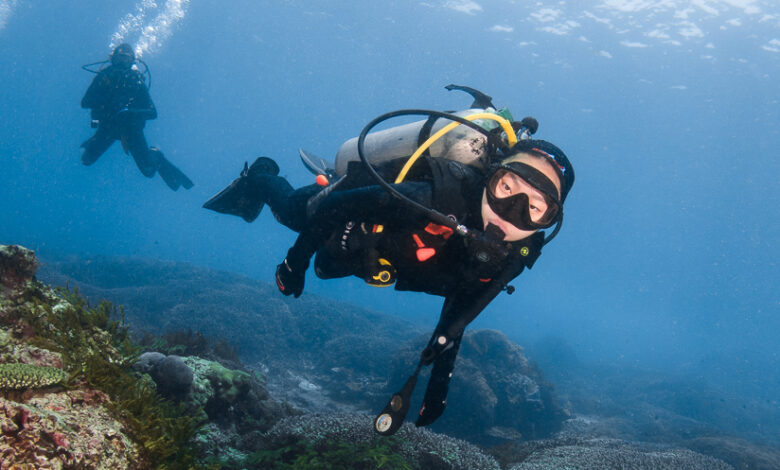5 Challenges a Diver Course Can Prepare You For

Taking an open water diver course is an exciting journey that not only introduces you to the world of open water diving, but also equips you with the skills and knowledge necessary to tackle various challenges in the water. If you want to get into open water diving but feel you lack the confidence to approach this activity, this article will detail five common challenges new open water divers face and how an open water diver course can prepare you for them.
Challenge 1: Overcoming the Fear of the Unknown
New divers are usually hesitant to get into open water diving due to the fear of the unknown. An open water diver course can help you overcome this fear by providing comprehensive training in a controlled environment. You’ll learn about the equipment and techniques and practice safety protocols that enable you to dive confidently and safely.
Instructors will guide you through each step of the process, gradually building your comfort level and proficiency in the water. This hands-on training will help you gain confidence in your abilities and conquer your fears, allowing you to fully enjoy the experience of open water diving.
Challenge 2: Mastering Buoyancy Control
One of the most critical aspects of diving is mastering buoyancy control, which enables you to maintain a constant depth and avoid damaging marine life and the marine environments beneath you. An open water diver course will teach you how to use your buoyancy compensator device (BCD) effectively, as well as how to manage your breathing to maintain optimal buoyancy. Through practice and guidance from your instructor, you’ll develop the skills necessary to hover effortlessly in the water, making your dives more enjoyable as well as environmentally responsible.
Challenge 3: Dealing with Equipment Malfunctions
Although diving equipment is designed to be reliable and durable, occasional malfunctions can occur. Knowing how to address these issues safely and efficiently is crucial for maintaining your safety underwater. An open water diver course will teach you how to identify and resolve common equipment problems, such as a leaking regulator or a malfunctioning BCD. You’ll learn how to handle these situations calmly and effectively, ensuring that you’re prepared to manage any equipment-related challenges that may arise during your dives.
Challenge 4: Navigating Underwater
Navigating underwater can be challenging, especially with limited visibility or in unfamiliar environments. During an open water diver course, you’ll learn essential navigation skills, such as using a compass, estimating distances and identifying natural landmarks. These skills will enable you to maintain your bearings and find your way back to your starting point, ensuring that you can explore the underwater world with confidence and ease.
Challenge 5: Adapting to Changing Conditions
The underwater environment can be unpredictable, and divers must be prepared to adapt to changing conditions. An open water diver course teaches you how to manage various challenges, such as strong currents, low visibility or changing water temperatures. You’ll learn techniques for staying safe and comfortable in these conditions, such as proper positioning in currents, using a surface marker buoy and adjusting your dive plan to accommodate unexpected changes.
Final Thoughts
An open water diver course is a valuable investment that can equip new divers with the skills and knowledge necessary to tackle various challenges in diving. By overcoming these challenges, you’ll be able to make the most of your diving experiences.





